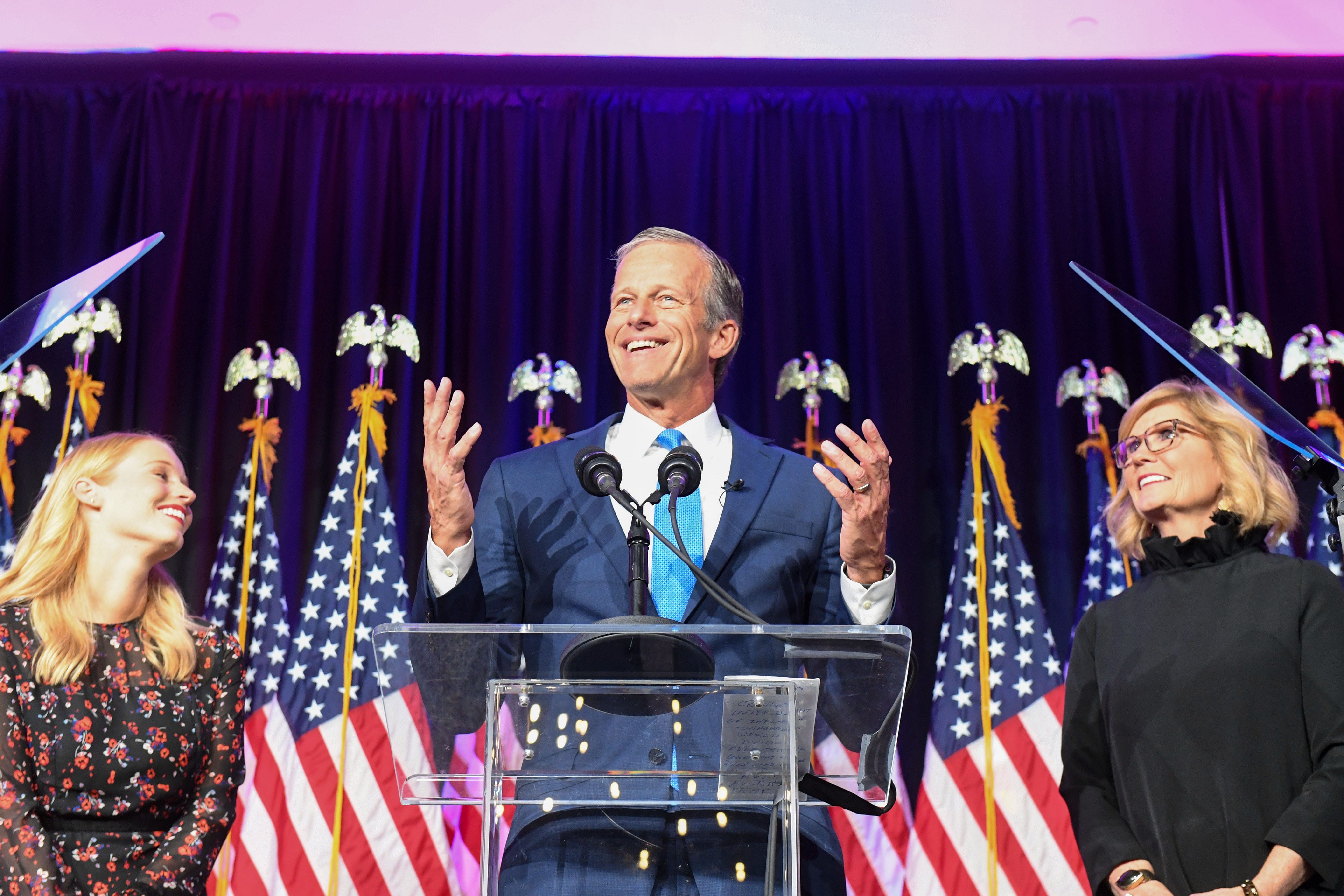
Exploring new Senate majority leader John Thune’s college basketball connection
Republican Senator John Thune from South Dakota has been elected the next US Senate majority leader. The 63-year-old senator currently serves in his fourth term and will succeed Senator Mitch McConnell as GOP leader, having won in a secret ballot vote over Senators Rick Scott from Florida and John Cornyn from Texas.
Thune secured the support of 25 of his Republican colleagues, while Cornyn received 15 votes, and Scott garnered 13 votes.
While none of the candidates posed a challenge to the NCAA’s legislative goals, including its push for antitrust protections from Congress, Thune’s selection provides the most favorable outcome for the NCAA.
The senator's penchant for sports support dates back to his experience as a star athlete in high school. In 1979, he played basketball, track, and football at Jones County High School. He also played college basketball at Biola University in California, graduating in 1983 with a Bachelor of Arts in business.
Senate Majority Leader John Thune's election to impact NCAA
With Thune's new position, the NCAA and the sports industry should expect a wave of support. Thune has shown ongoing interest in college sports issues and is concerned about the effects of its shift toward professionalization.
In September 2022, Thune and Senator Ben Cardin of Maryland introduced the Athlete Opportunity and Taxpayer Integrity Act, prohibiting the use of name, image, and likeness (NIL) tax deductions for college sports.
Tune said:
"College athletes have the ability to benefit from opportunities related to their own name, image, and likeness, but outside organizations and collectives should not be able to write contributions off their taxes that are used to compensate athletes."
Thune also supported creating universal federal NIL rules, stating that student-athletes and their families deserve protection. The politician advocates for fair athlete compensation while maintaining college sports’ amateur status, which could create more stable rules to benefit both athletes and schools.
In an August 2023 interview with Jay Elsen of Midco Sports, Thune expressed that the Congress may be able to help in setting transparent and uniform rules of the NIL across 50 states.
"I think the key is trying to find consensus. Congress typically doesn't act is if there's a lot of disunity out there," Thune said.
"If these schools can kind of come together behind basic things like a uniform standard contract, for example, or the fact that we're not going to allow these schools to create an employee-employer relationship with the athletes, those are set of basic constructs I think that can work and I'm hoping we can find some consensus around some things like that."
(skip to 2:57-4:42):